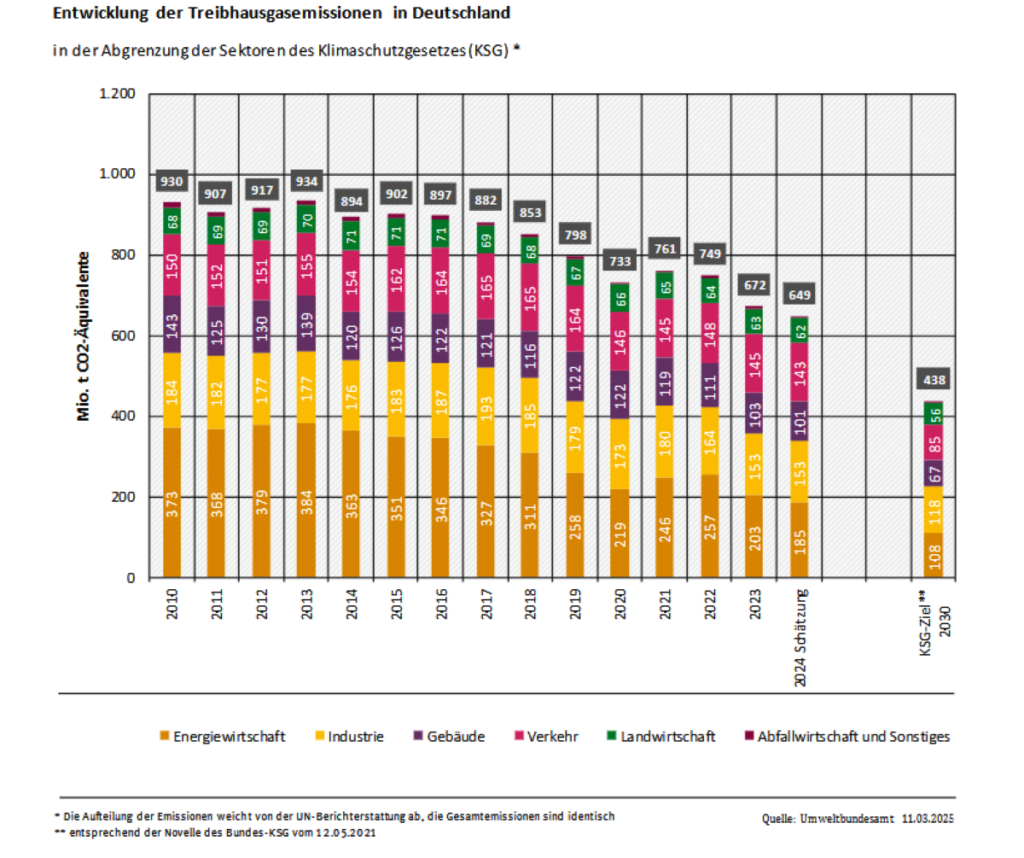
Inquiry
Green Energy Surge and Economic Downturn Lead to Decline in Greenhouse Gases by 2024
In 2024, Germany saw a 3.4% decrease in greenhouse gas emissions, equivalent to 649 million tons of CO2, according to calculations by the Federal Environment Agency (UBA). This is a significant decline from the legally approved adjusted total annual emissions of 693.4 million tons.
The UBA Projections Indicate a Viable Path to Reducing GHG Emissions
UBA's projections in 2025 suggested that the goal of reducing GHG emissions by 65% compared to 1990 levels by 2030 could indeed be achieved with the current climate policy instruments. Consequently, greenhouse gas emissions could reduce by a sizable 63% by 2030. The cross-sector annual emission totals from 2021 to 2030 would overshoot the target by 81 million tons of CO2 equivalent.
Renewable Energy and Recession: A Duet Driving Emissions Down
The decrease can be ascribed to a combination of the booming renewable energy industry and an economic dip, more specifically in the manufacturing sector.
Energy Sector Slashing Emissions by 9 Percent
Both currently and in the future, the energy sector, particularly electricity production, is making a more than fair share contribution to emission reduction with a decrease of 8.7% down to 185 million tons CO2 equivalent. This reduction in 2024 was largely driven by a significant drop in emissions from the fossil-based energy industry, owing to a surge in renewable energy usage accounting for about 54% of Germany's gross power consumption. UBA's projections reveal that the energy sector will continue to deliver an above-average contribution to reducing greenhouse emissions up until 2030.
In contrast, the industrial sector's greenhouse gas emissions remain nearly constant in 2024, with a minor increase of 0.1% to 153 million tons CO2 equivalent. The rising emissions in the iron and steel industry, as well as the chemical industry, encountered offsets in the cement industry. The economic headwinds serve as a reason for UBA's projection that the German industry will meet the emission targets by 2030.
In 2024, emissions in the transport sector decreased by approximately 1.4% to about 143.1 million tons of CO2 equivalent, putting the sector about 18 million tons over its goal. The sector also failed to meet the annual emission totals between 2021 and 2030 by 169 million tons of CO2 equivalent.
In the building sector, emissions fell by about 2.4 million tons CO2 equivalent, or 2.3% compared to 2023, to 100.5 million tons of CO2 equivalent. According to climate protection plans, the target for 2024 was originally 95.8 million tons of CO2 equivalent. The decline was primarily due to mild weather. By 2030, the sector is estimated by the UBA to miss the combined annual emission totals between 2021 and 2030 by 110 million tons of CO2 equivalent.
Our expert will reach you out if you have any questions!

